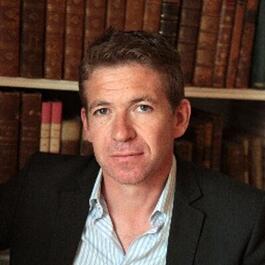
History Book Club
Ollie Webb-Carter, interviews historians and authors on the past - from the ancient world right up to the modern day. In each episode, Ollie seeks to get to the bottom of a story or scrutinise a figure from history. There are bonus episodes too, from current events and anniversaries to the History Film Club.
Show episodes
Latest film club is to celebrate the publication of Roger Moorhouse's latest book, Wolfpack, and it's Das Boot, the Wolfgang Petersen masterpiece. Links Wolfpack Das Boot on Wikipedia Ollie on X Tim on X Roger on X Latest Issue out - Annual Subscription to Aspects of History Magazine only $9.99/£9.99 Aspects of History
Latest film club is to celebrate the publication of Roger Moorhouse's latest book, Wolfpack, and it's Das Boot, the Wolfgang Petersen masterpiece. Links Wolfpack Das Boot on Wikipedia Ollie on X Tim on X Roger on X Latest Issue out - Annual Subscription to Aspects of History Magazine only $9.99/£9.99 Aspects of History
Is the West’s dominant golden age at an end? What can the past tell us about the future? Joining today is Johan Norberg who poses these and many more questions in his fascinating book Peak Human. Episode Links Peak Human Ollie Links Ollie on Twitter / X Learn more about your ad choices. Visit podcastchoices.com/adcho
On 9th February 1981 a novel was published that would reinigerate historical fiction, begin a series that would sell millions of copies, and inspire a certain Sheffield born actor to take on a role that would lead him to Hollywood as a Bond villain and the star of Lord of the Rings. Sharpe’s Eagle was that novel, and S
In the build up to World Cup 98 in France, Glenn Hoddle pondered the selection of England’s greatest and most skilful player. A mercurial genius capable of turning a game with one drop of the shoulder or defence splitting pass. His free kick ability was legendary. A scorer of great goals as well as a great goalscorer.
On 27th September 1943, in German occupied Naples, an uprising began that lasted four days. By the 29th the Germans had lost the city and so made the decision to leave, heading north for safety as the victorious Neapolitans and Partisans celebrated in the streets. On 1st October the Allies arrived, and the city was sec





